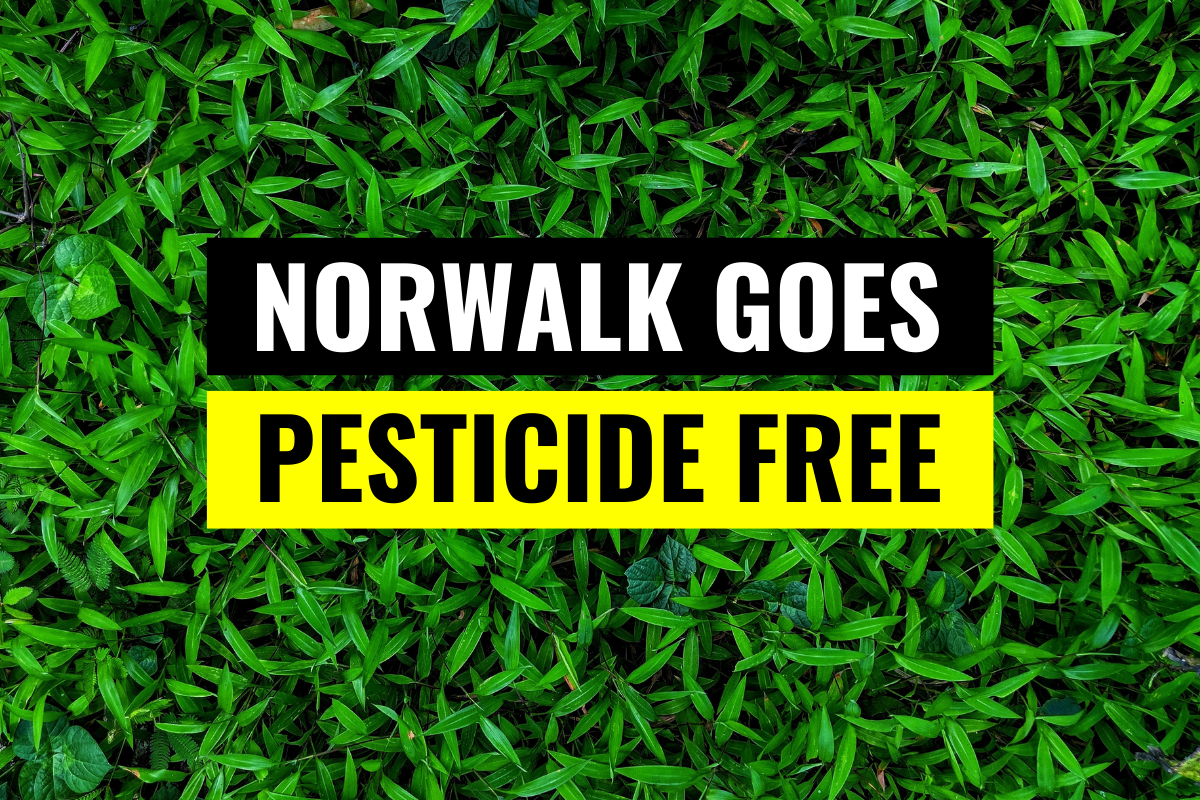The Common Council of Norwalk has passed an ordinance that will ban toxic synthetic pesticides on public properties throughout the Connecticut community of 91,000 residents.
The ban, which will go into effect at the end of 2022 and will also include the city’s Oak Hills Park Golf Course, follows years of advocacy by local groups such as Pesticide Free Rowayton and cements into law a policy implemented by the City’s Department of Public Works in 2019 restricting toxic pesticide use on public spaces in favor of safer, organic land care practices.
The umbrella term “pesticides” includes “insecticides, herbicides, fungicides, rodenticides, all the other biocides out there intended to mitigate, kill or repel a pest or weed,” said Drew Toher, community resource and policy director for Beyond Pesticides, a national non-profit based in Washington, DC. Toher provided testimony for public hearings that began in March 2022.
The use of a wide range of toxic pesticides, including those allowed by the Environmental Protection Agency on lawns and other property, are linked to cancer, birth defects, reproductive toxicity, kidney and liver damage in humans. Numerous studies have also shown that toxic pesticide use disproportionately impacts communities of color and young people.
The deadly impact of these toxic chemicals—which range from organophosphates, found in common consumer products such as Roundup, to the new classes of neonicotinoids—on animals, aquatic life and beneficial insects are well known. “Neonics,” a systemic insecticide that is absorbed by plants for pest control, are both highly persistent in the environment and easily soluble in water. Widely used as a coating on seeds (and thus not even considered a pesticide by the EPA) and also found in consumer products such as flea collars for pets, neonics are having a devastating impact on bees and other pollinators and the life that depends on them. If swallowed, a single kernel of corn treated with a neonic is enough to kill a songbird.
“Safer, organic alternatives may take more effort initially, or may be a little more expensive, but these considerations will be outweighed by knowing the city will no longer be posing a health risk to people, pets or pollinators or all the wildlife uniquely vulnerable to pesticide exposure,” said Priscilla Feral, president of Friends of Animals, based in Darien, CT.
A resident of the Norwalk enclave of Rowayton and founder of Pesticide Free Rowayton, Feral advocated for the passage of an organic, pesticide-free lawn care program in the coastal community’s six public parks, adopted nine years ago. The ban to include all of Norwalk follows landmark legislation passed by neighboring Stamford in September 2021, enacting an organic community ordinance restricting toxic pesticide and fertilizer use on public property.
Of 30 commonly used lawn pesticides, all 30 are toxic to fish and aquatic organisms, 26 are deadly to bees, 22 are toxic to birds, and 14 kill bees. Responding to health concerns about controlling ticks and mosquitoes without toxic synthetics, Toher of Beyond Pesticides acknowledged the need for effective measures but pointed to a study that showed a group of Connecticut residents suffered the same number of ticks on their bodies whether or not a pesticide was used. A wide range of effective organic solutions and practices to control pests such as ticks and mosquitoes or plants like poison ivy may be found at beyondpesticides.org.
Friends of Animals, along with a range of animal advocacy and environmental groups active in Connecticut, intend to continue efforts to enact a statewide ban on toxic pesticides. “It’s high time that we connected people and conscientious lawmakers—linking municipal pesticide bans to the interests of animal advocates, gardeners and conservationists, so that the hazards and risks of using pesticides both informs residents and changes public policies and practices,” said FoA’s Feral.

